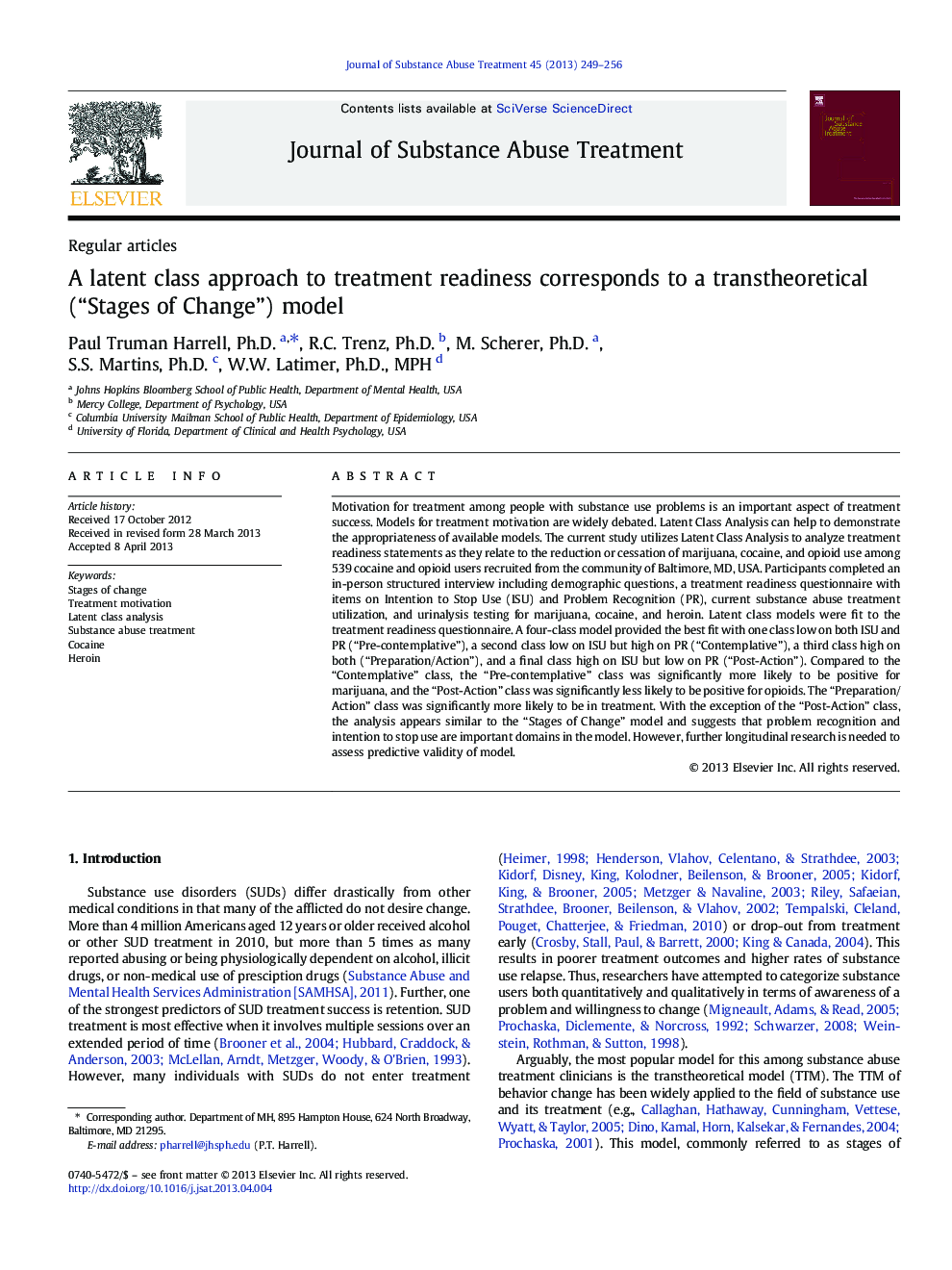| کد مقاله | کد نشریه | سال انتشار | مقاله انگلیسی | نسخه تمام متن |
|---|---|---|---|---|
| 329692 | 543589 | 2013 | 8 صفحه PDF | دانلود رایگان |

Motivation for treatment among people with substance use problems is an important aspect of treatment success. Models for treatment motivation are widely debated. Latent Class Analysis can help to demonstrate the appropriateness of available models. The current study utilizes Latent Class Analysis to analyze treatment readiness statements as they relate to the reduction or cessation of marijuana, cocaine, and opioid use among 539 cocaine and opioid users recruited from the community of Baltimore, MD, USA. Participants completed an in-person structured interview including demographic questions, a treatment readiness questionnaire with items on Intention to Stop Use (ISU) and Problem Recognition (PR), current substance abuse treatment utilization, and urinalysis testing for marijuana, cocaine, and heroin. Latent class models were fit to the treatment readiness questionnaire. A four-class model provided the best fit with one class low on both ISU and PR (“Pre-contemplative”), a second class low on ISU but high on PR (“Contemplative”), a third class high on both (“Preparation/Action”), and a final class high on ISU but low on PR (“Post-Action”). Compared to the “Contemplative” class, the “Pre-contemplative” class was significantly more likely to be positive for marijuana, and the “Post-Action” class was significantly less likely to be positive for opioids. The “Preparation/Action” class was significantly more likely to be in treatment. With the exception of the “Post-Action” class, the analysis appears similar to the “Stages of Change” model and suggests that problem recognition and intention to stop use are important domains in the model. However, further longitudinal research is needed to assess predictive validity of model.
Journal: Journal of Substance Abuse Treatment - Volume 45, Issue 3, September 2013, Pages 249–256